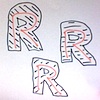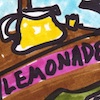Presenter – Michael Ivey
Blow by blow – sort of: What is the value? Michael finds that using 2nd Life makes for richer distance communication, as an alternate to just chat or other non-visual communication. Virtual marketing — Nissan had virtual cars to drive around and they came out of a giant vending machine. Other product placement. This has been the main area of business, at least big corporate business. Companies that are using 2nd Life for event-oriented and entertainment tie-ins. What about training? Thinks it would work well for training. Distraction- potential is high – but there are options for locking down sessions and shutting off IM and things. There.com – had non-localized content. Second Life is only localized content – everything is tied to the parcel – very spatial. How do you make something more realistic in 3d? Better modeling that is camera responsive is possible but difficult. XML-rpc can interact with objects – requires permission.
Got some show & tell — saw how to build a basic primitive. talked about different small ways to generate Linden dollars. Michael’s wife brings in enough lindens through her knitting shop and other 2nd life entities to offset their monthly spend within the environment. Cool stuff.










Live from Barcamp – Day 2 – Session 3 [for me] Google Web Toolkit
Presenter – Robert Cooper
Had a good lunch – everything food-wise that you can possibly put on a stick – finishing with chocolate covered cheesecake on a stick. Who can complain about that?
Now sitting in Cooper’s session on Google Web Toolkit – a Java to javascript compiler. It’s certain to be way over my head [again] but I’ve got to be loyal to the old AnyDevice crew.
Some paraphrase, etc.:
“It’s a combinatorics problem” you don’t hear that very often.
full implementation for the DOM. Specific implementation for all major browsers – 5 compilations per application based on user agent [expanding to 8] Monolithic compile to all the customized environments. Can be hacked to tailor experience per environment.
The application looks like a single unified app, but the model gets altered per environment — keeps the javascript footprint small. Lots of squeezing happens in the compiler. The shell is built with SWT system’s SWT browser component – uses the native browser for the environment. Includes RPC system, but you’re not bound to use it. Shell, standard development environment — take native browser and hook in controls to native byte code. Supported on net beans, eclipse and others. Shell dynamically compiles Java in the background so almost like working in an interpreted environment. Translates everything back to regular running java code which enables use of a java debugger. Platform includes a remote testing system. Unit tests can be farmed out to each individual browser which can help isolate browser specific problems. Includes an embedded Tomcat server, which is a little weird to work with compared to regular Tomcat. GWT very similar to java 1.1 in experience. Limited reflection implemented, can do simple data binding. Binding a grid form to a data feed — continuous environment updates, support for data validation in forms. Can use reflection to create animation effects — helps make it easier to build an application. More return on javascript size when the application is more complex. Very heavy footprint for simple, hello-world type stuff, but cleans up a lot as part of the library. Better returns on file size over growth of application. Has a very specific support for caching. Automatic versioning system based on md5 hash of compilation. Nocache.js is the bootstrap file. That’s the only file that requires pragma nocache. Some files can be cached permanently, because versioning will take care of them.
Helps protect application from cross-site scripting attacks. Currently have 3 applications in production now, all used internally, but some have 5000+ users.
Show & tell: soft scroll module — force a button to be visible in a pane. Nice for enhancing user experience. Makes for a highly portable user experience — can be ported to many emergent platforms like Nintendo Wii and iPhone. Abstraction over browser differences (like directx calls versus firefox canvas) simplifies keeping user experience consistent across platforms.
Still some problems as to where the web designer fits into the process – right now you really need a programmer on the UI. The new version coming, GWT 1.5, will allow html to be compile to be regular gwt widgets so a designer can make a layout and have that dropped into the development process. 1.5 will also have have Java 1.5 syntax — will make life happier for working in the IDEs. Google is starting to see widespread adoption so you’ll start to see some standardization and optimization.